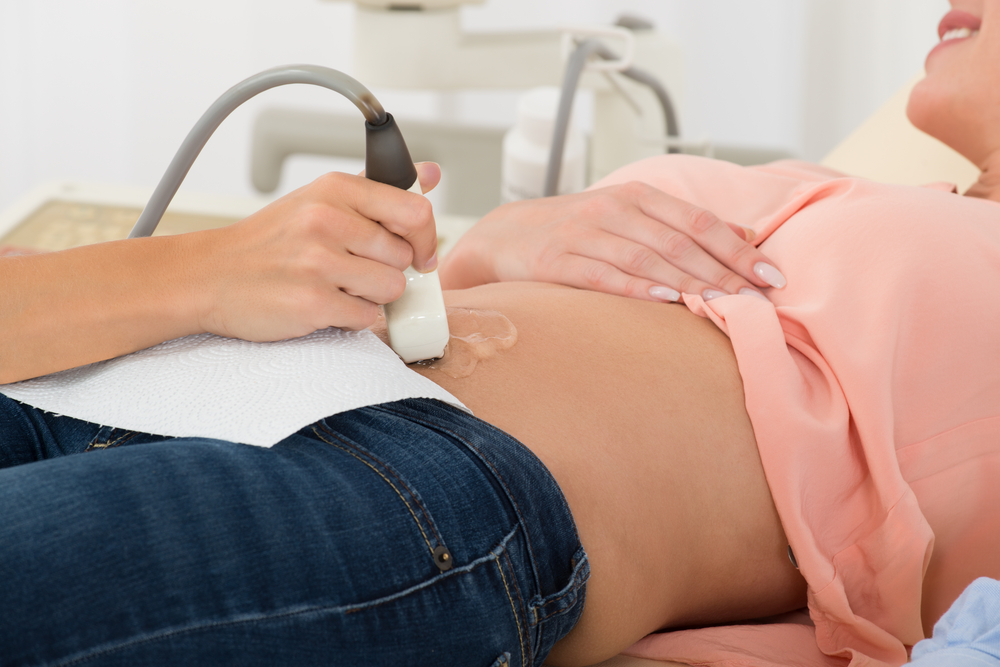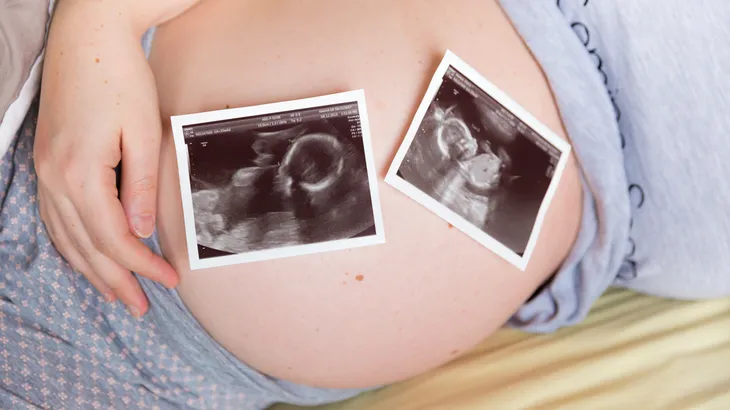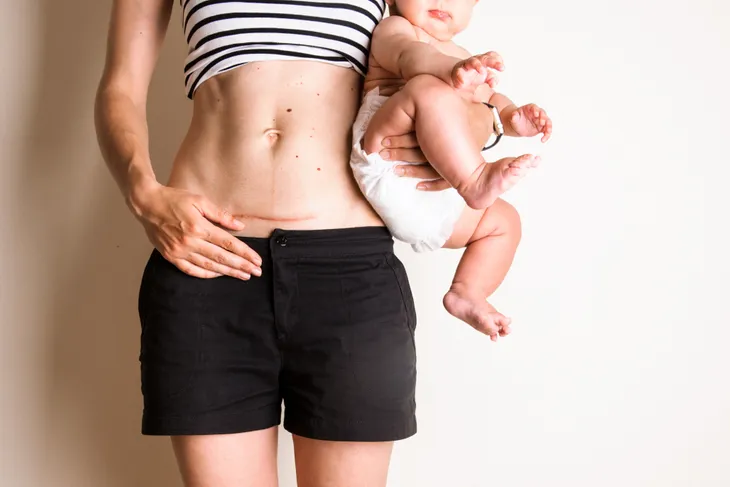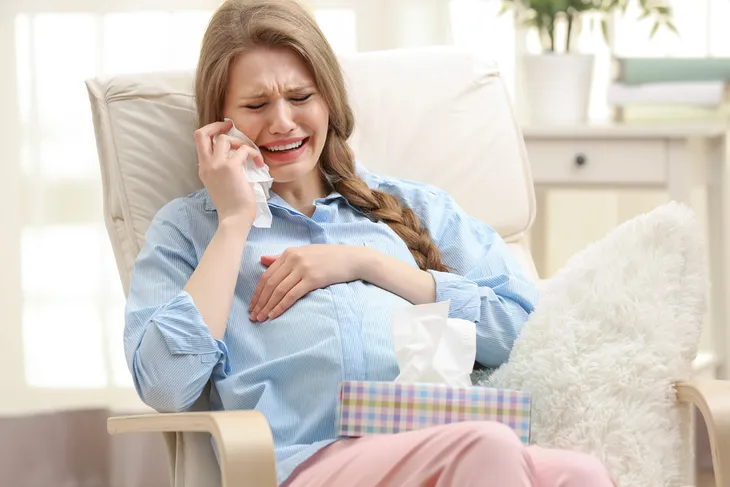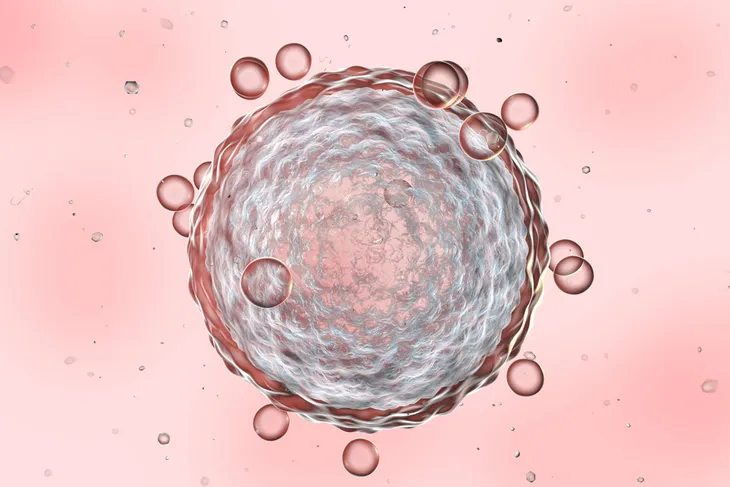More woman are having children later in life which means having a baby after the age of 35 isn’t all that uncommon.
However, doctors and midwives take extra precaution with pregnant women over 35 as they can be more susceptible to certain health concerns such as gestational diabetes, miscarriages, and delivering a baby with chromosomal abnormalities (i.e., Down syndrome).
Here are 10 facts to keep in mind if you plan to give birth past age 35…
Greater Risk of Pregnancy Complications
Women who get pregnant past the age of 35 are more prone to developing certain complications during pregnancy, including gestational diabetes and high blood pressure. Gestational diabetes is a condition in which pregnant women develop insulin imbalances, leading to a diabetic condition that may or may not remain after the baby is born. In some cases, gestational diabetes causes early labor and premature birth, but more commonly causes large or gestational age babies and distress for the baby if not controlled.
High blood pressure is also more likely to strike a pregnant woman over the age of 35, owing to the increased strain that pregnancy puts on your body. Making sound dietary and lifestyle choices can keep this problem in check, though you’ll have to be conscientious about your efforts. Above all, make sure to visit your doctor regularly and be an active participant in your prenatal care. Your medical team can step in and help you if you show signs of developing these or any other complications.
Healthy Diet Is Vital
A healthy, balanced diet is vital for all pregnant women, regardless of age. Oftentimes, an older woman is more prone to pregnancy weight gain, which can contribute to further complications and energy drain during her pregnancy. But a well-balanced diet (plus prenatal vitamins) that focuses on whole, natural foods and quality proteins should do its part to prevent excess weight and ensure both mom and baby are properly nourished.
In particular, doctors and pregnancy nutrition experts recommend that you increase your calcium intake and that natural sources are better than supplements. Aim to eat at least four servings of calcium-rich dairy per day to go along with lots of fresh fruits and vegetables, especially leafy greens and citrus fruits. Beans, lean meat and whole grains should round out your diet, and while you may experience cravings for sweet or salty treats, try your best to indulge them only in moderation.
Risk of Chromosomal Abnormalities
If you’re pregnant past the age of 35-years, your doctor will offer a series of genetic tests to monitor for certain chromosomal abnormalities that increase with more mature pregnancies. For instance, there is a cell free DNA blood test that can be done after 10 weeks. Although cell free DNA is a screening test, it is highly sensitive. If a woman wants a diagnostic test, usually an amniocentesis is offered because the risks are lower than what they would be for chorionic villus sampling (CVS).
Mothers over the age of 35 have higher genetic disorder rates due to older eggs which are often less quality. If you’re unsure about whether or not to do genetic screening or diagnostic tests, talk to your doctor. They can counsel you on all your options and what the risks might be.
Heightened Risk of Miscarriage
It’s no secret that women over the age of 35 suffer higher risk of miscarriages and stillbirths compared to younger women. And risk of miscarriage only increases with age, for instance, while women who are 35 years old have a 20-percent chance of miscarrying; those 45 years or older have a 35-percent risk of miscarrying. These higher rates of pregnancy loss are believed to result from underlying health conditions which affect older mothers, and/or the presence of chromosome abnormalities in the fetus.
Unfortunately, pregnancies can terminate spontaneously, sometimes during very late stages. It’s very important to maintain an ongoing dialogue with your care team as you enter the final trimester of your pregnancy, and you should be very careful to optimize your diet, activity levels and lifestyle choices so you do everything possible to protect your baby’s health.
Higher Incidence of Twin Births
Older women also often find themselves with a double surprise—twins! It’s a fact that twin births are more common in pregnant women who are 35 years of age or older. Researchers aren’t 100 percent sure why this happens, but a recent study has yielded some clues, and the answer may lie in hormonal changes and increased use of certain medications. The study tracked incidences of fraternal twins, which are much more common than identical twins.
First, older women have higher levels of a hormone known as FSH (follicle stimulating hormone). This hormone has been linked to higher incidences of twin births. Second, fertility drugs increase a woman’s chances of having twins. Since women over the age of 35 are more likely to need (and take) fertility medications than younger women, this may also explain why older mothers give birth to multiple children after a single pregnancy more often.
More Cesarean Sections
If you’re 35-years-old or older and pregnant, you have an increased chance of a cesarean section delivery as well. This can be due to the greater likelihood of complications during pregnancy and delivery, including labor issues such as excessive bleeding, prolonged labor (defined as labor lasting 20 hours or longer), and stalled labor, which occurs when labor processes slow down or stop before the baby is delivered.
Cesarean sections are more common than vaginal births among older mothers. One of the other common complications that might indicate a cesarean section is the presence of a condition known as “placenta previa,” in which the placenta actually blocks the cervical opening during labor. Older mothers are much more likely to develop placenta previa than younger women. They also tend to need pitocin, a labor augmentation medication, once the labor process has started. Pitocin helps reduce the chances of stalled labor occurring.
Drastic Emotional Changes During Pregnancy
Hardly any mother-to-be is quite prepared for the complete emotional transformation that comes with being pregnant for the first time. Hormonal fluctuations are almost always at the root of the emotional roller coaster that pregnancy can be. Older women often experience much more intense hormonal fluctuations during pregnancy, which means they are much more likely to experience significant changes in their moods and emotions. There’s also a great deal of anecdotal evidence to suggest this phenomenon isn’t a figment of popular imagination.
Mood and emotional changes most often present as sudden and dramatic mood swings. One minute, you might be laughing, and the next minute, you might be crying. While there is usually some form of trigger (someone tells a joke, or you see a sad commercial on television), many women experience these emotional changes for no identifiable reason. If you know what to expect, it will be easier for you to deal with these mood swings, should they happen to you.
Egg Quality Declines
As women age, they experience a natural decline in overall fertility. This means they ovulate with diminishing predictability and regularity, and they may occasionally miss an egg release altogether. Egg quality also begins to wane between the ages of 30 and 40, with genetic egg imperfections becoming more likely and the chances of conception going down. For this reason, many older women seek fertility treatments when they’re trying to get pregnant. These treatments are designed to stimulate egg production.
However, it’s important to remember that fertility tends to decline in older men, too. Just as the viability of women’s eggs diminishes with age, so too does sperm quality; older men produce fewer viable sperm than younger would-be fathers. If conception is proving to be difficult, it’s equally important for the male member of the parenthood partnership to have his fertility evaluated and, if necessary, treated to increase your chances of success.
It May Take Longer To Conceive
In addition to lowered fertility after the age of 35, there are also more difficulties with timing conception. For instance, where it can take a couple in their 20s just a few months to conceive, couples over 35 take longer to become pregnant. Doctors and researchers have identified a number of important factors that influence successful conceptions, and age is one of the key indicators.
Other factors that help determine whether or not you get pregnant include the timing of sexual intercourse; ideally, it should take place during the peak of your ovulation phase. Your doctor can help you keep track of this so you can have intercourse when you’re naturally at the most fertile point in your cycle. Nutrition, weight, and lifestyle factors can also exert a significant impact on your chances of conceiving, and optimizing these issues can take some time if you need to improve your diet, lose weight or make changes in your habits and choices.
Remember, Every Woman is Different
When it comes down to age and pregnancy, 35 is just a number and every woman’s biological age differs from her actual chronological age. While many women have a family history of difficult conception, others will be able to conceive quite easily into their 30s and even their 40s. It all comes down to how healthy you are, and how well you’ve taken care of your body over the course of your life.
At the age of 35, you’re still young enough to enact significant improvements to your overall health, and that can boost your chances of getting pregnant. Losing weight, improving your diet and getting regular exercise all help turn back the clock, so if you’ve been neglecting these aspects of good overall health, invest in yourself and your health and you may find that getting pregnant in your 30s is easier than you might have initially thought.
